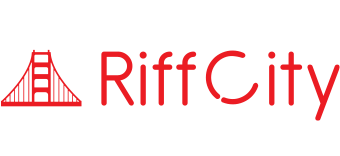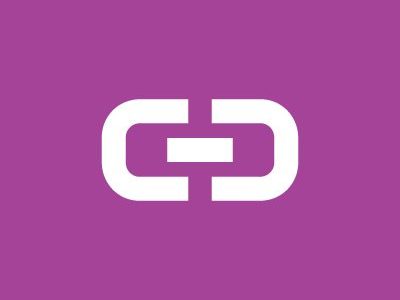CBS: Progressive groups shatter fundraising records in battleground states
Check out Way to Win in the article below!
By LACRAI MITCHELL, SARAH EWALL-WICE
CBS – September 21, 2020
With less than 50 days until Election Day, progressive groups are investing millions into voter registration, education and mobilization efforts in battleground states amid the coronavirus pandemic.
These groups do not claim to be affiliated with either political party but are clear in their desire to prevent President Trump from being re-elected in 2020. Touting a progressive agenda, these groups aim to educate voters about the political process and walk them through voting step-by-step amid the coronavirus pandemic. Additionally, most of the local-based groups have been organizing in states long before the 2020 election cycle.
In some cases, the ground game efforts of these progressive groups have been in the making for more than a decade. And though the coronavirus forced them to quickly focus more on digital organizing this year, most groups say it caused a shift in budget priorities and forced them to think of innovative methods to reach voters.
Way to Win is a progressive group that invests in community-based organizations across the country, in an effort to build multi-racial coalitions that can help win elections. Proponents of the Green New Deal and Medicare for All, Way to Win was also an early funder of the fight for Amendment 4 in Florida that seeks to o restore voting rights to people formerly convicted of felonies. The group is outspoken advocate for abortion rights and also supports calls for social and racial justice through partnerships with groups like the Movement for Black Lives.
Over the span of three years, Way to Win has raised money from hundreds of individual donors and has committed more than $80 million to groups in battleground states like Arizona, Florida, North Carolina and Pennsylvania.
Ahead of the 2018 midterm elections, Way to Win raised more than $22 million. The numbers have only increased since then, with the group raising $27 million in 2019, and more than $60 million in 2020. Way to Win credits the increase in funding to the group’s proven success and an understanding from donors that the stakes to win are high in 2020. According to Way to Win, the group has a 75% win rate in the races they’ve backed. The team adds that their donors want to invest in the group because it’s proven that it “can produce real return on their investment” ahead of the November election.
Working with local partners, Way to Win president and co-founder Tory Gavito said the group’s investments have helped win nearly 176 down-ballot races since 2018.
“It’s really important that local community groups are at the center of turning out voters this election, not just for the outcome of those Election Day counts,” said Gavito. “Win or lose, if organized communities are mobilized and asking for policy change, they’re the real winners.”
Living United for Change in Arizona, or LUCHA, is a grassroots organization that has been reaching out to voters in communities of color since 2010. Tomas Robles, a co-executive director for LUCHA, said the group has received more financial investments this political cycle than ever before. In 2018, Way to Win invested upwards of $700,000 into LUCHA. This year, Way to Win increased their investment and gave LUCHA more than $1 million.
Robles and LUCHA co-executive director Alejandra Gomez, both said more significant investments must be made in communities of color to encourage voting and education around progressive politics.
“Our communities have been organizing for generations [and] we have been at the front lines of so many fights because our lives depended on it,” said Gomez. “For our communities to truly be able to thrive, it means we’re…looking at elections beyond 50 plus one. We’re looking at candidates that represent our values…that have an expansive view on what equity means.”
Since 2018, LUCHA has hosted 3,500 listening sessions with voters to better understand the issues that resonate with communities in Arizona. And despite having to transition to digital organizing in March, the group launched a campaign to get 1 million voters to vote- by- mail or in-person by Election Day.
In North Carolina, Way to Win is on schedule to move at least $1.5 million to North Carolina-based groups this year—an increase from the $871,500 that the group invested in the state in 2019. From 2019 to 2020, Way to Win increased its investment into Advance Carolina, one of Way to Win’s North Carolina-based partners, by hundreds of thousands of dollars to and has now donated more than half a million dollars to the organization.
Marcus Bass, 33, is the executive director of the group and said his team is educating voters about down-ballot races and is starting to schedule socially -distanced face-to-face conversations with voters. Advance Carolina has also compiled 40,000 voter safety kits for distribution that include gloves, masks, hand sanitizer, pens, and a voter guide with information about requesting an absentee ballot.
“We’re making sure folks realize where the power is,” said Bass. “There’s a real issue of safety because of the coronavirus but the real racist element of exposure to racism, regardless of whether you have a mask on or not, it compels us to engage in this capacity in this moment.”
NextGen America is a progressive group focused on mobilizing young voters in a handful of battleground states including Wisconsin, Michigan, Arizona, Florida, Pennsylvania, and North Carolina. Since 2016—though NextGen America was known as NextGen Climate at the time—the group’s overall investment into organizing efforts has nearly doubled, with $45 million invested in 2020. In North Carolina, NextGen’s investment has ballooned from more than $500,000 in 2016 to $4.5 million in 2020. A NextGen spokesperson told CBS News that 2020 Democratic presidential candidate Tom Steyer continues to be a key funder for the group.
“The investment is so large…[because] we want to make sure that no stone goes uncovered, no voter goes uncontacted, everybody has the opportunity to carry out that civic duty and cast their ballot,” said Rachel Weber, NextGen America North Carolina press secretary. “We’ve seen our investments in North Carolina and in other battleground states translate to increases in youth voter turnout.”
The Progressive Turnout Project, which is the largest grassroots-funded voter outreach organization in the country, has been focused on one-on-one conversations with inconsistent voters who typically vote for Democrats but don’t always make it to the polls.
The group currently has about 1,000 staffers. The plan was to initially knock 10 million doors in 17 presidential and congressional battleground states, but coronavirus shifted PTP’s tactics. Still, in May, the group announced plans to invest more than $52 million in its outreach efforts for the 2020 election cycle and that investment still stands despite shifting field operations.
Based on the number of calls made, PTP projects it will have more commitments to vote than the margins Mr. Trump beat Clinton by in Wisconsin, Michigan, Pennsylvania and Florida in 2016.
For Our Future Action Fund has invested $40-$50 million in previous cycles in toss-up states like Michigan, Ohio, Pennsylvania, Wisconsin, and Florida. In 2016, For Our Future’s funding came from a variety of sources including a coalition of labor unions and NextGen America. In 2018, additional sources of funding came from individual donors and organizations looking to grow their programs with an additional field partner. For Our Future Florida typically has the largest field operation and according to their team, ahead of the 2018 election, they knocked 3 million doors and reached voters through 2 million text messages.
Blake Williams, For Our Future Florida Communications Director, told CBS News that even amid the pandemic, his team has moved to online organizing with Zoom texting training, phone banks, and even the creation of online field offices through Facebook groups.
“What we need to accomplish and what other groups need to accomplish is the same…getting through your universe, turning out your voters, getting people to the polls but the game plan to achieve it is a little different,” Williams said.


